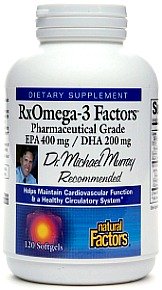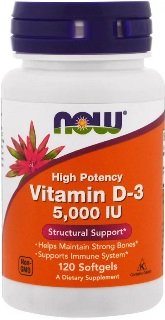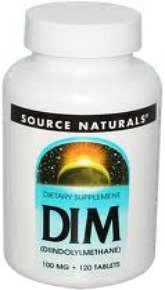Vitamin D3: Powerful natural high blood pressure remedy and vital nutrient
Vitamin D3 is fat-soluble vitamin which is actually a hormone. Our body can synthesize it, when the skin is exposed to sunlight. All other vitamins A, B, C, E and K as well as minerals, we can get from food.
Although some foods contain vitamin D, the amount is very small, when compared to daily requirements. Many people these days can trace some of their problems, health wise, to vitamin D deficiency.
Deficiency can be caused by adverse weather conditions, lifestyle choices or skin type. Some people live in a area with too few sunny days, while others just don't get out that much.
On the other hand, people with darker skin synthesize less vitamin D3, due to higher melanin levels. The darker your skin, the more melanin it has.
FOOD SOURCES OF VITAMIN D
Foods sources are:
Only cod liver oil with 1,360 IU per serving (1 tablespoon) and fatty fish ranging from 250-560 IU per serving (50-100 grams or around 3 ounces) are meaningful food sources. All other foods contain less then 100 IU, per serving.
VITAMIN D3 - DOSAGE
Sunlight is the best natural source of this precious nutrient. Short 15-20 minute exposure of your arms, legs, face and neck may provide anywhere from 2000 up to 10 000 IU, depending on a person.
People with lighter skin can produce significant amounts of vitamin D in very short period of time. It is stored, by the body for further use.
Scientist speculate that daily requirement ranges from 400 IU up to 1000 IU per day. High vitamin D levels are one of the reasons why so many teenagers expirience growth spurt summer.
Stored levels of vitamin D are depleted during winter which is one of the reasons why so many people get sick. This also makes winter the best time to take vitamin D supplements.
I have tried taking 400 IU which didn't make no difference. However, when I tried taking 5000 IU per day, I started noticing some great effects, healthwise.
VITAMIN D AND HEART DISEASE
Besides regular exercise, healthy diet and weight loss, vitamin D3 is one of the best natural remedies for lowering high blood pressure. It is also much safer than ACE inhibitors.
It affects renin-angiotensin-aldosterone system, by slowing down the formation of renin. Renin breaks down angiotensinogen, into angiotensinogen I which is converted into angiotensin II, by ACE enzyme.
Angiotensin II causes vasoconstriction and stimulates the release of aldosterone. Aldosterone is a hormone produced by the adrenal glands which causes sodium retention.
Both, angiotensin II and aldosterone are responsible for raising blood pressure, one by vasoconstriction and other by sodium retention.
While ACE inhibitors blocks ACE enzyme, vitamin D3 slows down the formation of renin which reduces formation of angiotensin II and aldosterone thereby lowering high blood pressure.
Also, sodium retention leads to loss of potassium. Potassium helps lower blood pressure. So, it is a triple threat.
On the other hand, high levels of vitamin D in the blood can lead to atrial fibrillation which causes fast heart beat and arrhythmia.
IMMUNE SYSTEM AND VITAMIN D
Vitamin D can prevent several forms of cancer and improve the function of immune system. It seems to affect dendritic cells, macrophages and especially T cells. If there is not enough vitamin D in the blood, reaction of T-cells won't be complete and T-cells won't do their job.
This precious nutrient also has anti estrogen properties which help may prevent breast, uterine and prostate cancer, while improving testosterone levels.
BONES, TENDONS AND JOINT HEALTH
Although I haven't ordered it for this issue, I noticed improvement, regarding my lower back pain. Cartilage in the middle and especially my lower back was very thin. After I started taking vitamin D3, the space between the disks got thicker.
This was the sign that cartilage is regenerating. I could finally feel the space between the vertebrae, while standing up straight and not like before, when it was almost bone on bone which caused back pain.
Vitamin D may also be helpful for strengthening the bones, tendons and ligaments, while reducing the risk of arthritis and osteoporosis, later in life.
DIABETES AND VITAMIN D
Vitamin D has active role in regulating pancreatic beta cells thereby preventing autoimmune destruction of these insulin-producing cells. It may also increase insulin sensitivity and help reduce high blood sugar levels.
Since diabetes has big impact on the cardiovascular system, lowering high blood sugar levels will also reduce the risk of heart disease.
BRAIN AND MOOD
Although I bought vitamin D3 to boost immune system function, I noticed that my mood and brain function both improved. This ain't anything new since there is proven connection between sunny days and better mood. Increased production of vitamin D has to have some part in all of this.
That being said, winter is a time of year when depression and anxiety are at its highest. Adequate levels of sunshine vitamin can also reduce the risk of neurodegenerative diseases, dementia as well as multiple sclerosis.
Some people even use it to improve their memory and cognitive function.
CONCLUSION
If you overdose on vitamin D3, you can experience the side effects such as nausea, vomiting, frequent urination, headache, weakness, arrhythmia, atherosclerosis, high blood levels of calcium, overactive parathyroid gland, kidney stones as well as kidney or liver failure.
Vitamin D toxicity is very rare since it can be caused only by taking too much supplements. The body regulates how much vitamin D is produced from sun exposure, while most foods don't contain significant amounts of this powerful nutrient.
- Heart Healthy Diet: Simple Tips and Guidelines
- Learn everything you need to know about heart healthy diet and find the right one for you. Implement few simple tips for immediate benefits.
- Heart Healthy Foods: How to Get the Most from Them
- Heart healthy foods can improve cardiovascular system function. Foods good for the heart are bursting with vitamins, minerals and rejuvenating phytochemicals.
- Herbs for the Heart and Cardiovascular System
- You have heard for hawthorn and garlic but there are few other herbs for the heart which can help in treating heart disease, naturally.
- The Best Heart Health Supplements
- Besides fish oil, there are several heart health supplements which can be useful. This includes Coenzyme Q10, Salicin, vitamin D3 and few others.
- Heart Healthy Spices
- Although there are many heart healthy spices out there, each of them can help prevent and treat heart disease in its own way, thanks to different types of flavonoids in these heart spices.
- Stress and Heart Disease: How are They Connected
- Stress and heart disease are closely related. In order to decrease the risk of heart problems, we have to learn how to handle the stress and treat its consequences, if we are unable to avoid it.
- Cardio Exercises for the Heart and Cardiovascular System
- Cardio exercises are vital part of natural heart disease treatment. However, which kind of heart exercise you should preform, varies from person to person.
- Good vs Bad Cholesterol: How to Improve Cholesterol Values
- Good vs bad cholesterol conflict is somewhat misunderstood. There is no good or bad cholesterol but only high or unbalanced cholesterol.
- Good Fats vs Bad Fats: Nutritional Facts and Guidelines
- What is the real truth when it comes to good fats vs bad fats? How much dietary fats should you consume daily and what are the best food sources of healthy fats?
- High Blood Pressure Remedies
- High blood pressure remedies range from tips and lifestyle modification to herbs and supplements. However, the method that works for someone else, may not work for you.
- Normal Heart Rate: How is Regulated and Influential Factors
- Normal heart rate varies from person to person. Although, age affects resting heart rate, there are many other factors that can raise or decrease heart rate.
- How to Lose Fat: Overlooked Tips for Weight Loss
- How to lose fat is surely one of the most intriguing questions for so many people. However, the answer is very simple. Eat healthy foods, perform fat burning exercises and take care of your hormones.
- Hormones and Heart Disease Connection
- Don't neglect hormones and heart disease connection. If you want to treat or prevent heart disease you have to balance your hormones.
- Heart Disease and Immune System Connection
- Heart disease and immune system connection is often overlooked, while trying to improve cardiovascular system function. However, there are several things you can do to change this.
- Dental Health Heart Disease Connection: Facts and Tips
- Dental health heart disease connection is one of three overlooked factors, along with hormones and immune system. However, with smart and effective approach we can change this.
- Causes of Heart Disease
- There are many causes of heart disease and factors that can increase or decrease your risk for developing heart related problems. Check how to turn the tide in your favour.
- Symptoms of Heart Disease
- There are few main symptoms of heart disease. Find out which are they, how to recognize them as well as my personal experience with some of them.
- Diagnosis of Heart Disease
- Accurate diagnosis of heart disease is the first step toward recovery. You can't start with treatment before you know what kind of disease you have, obviously.
- Treatment for Heart Disease: Medications and Surgeries
- Standard treatment for heart disease consists of surgeries, medications and devices. Which one is right for you, depends on your condition.
- Heart Disease Blog
- This is a blog about natural remedies, personal stories, helpful herbs and supplements, workout program as well as other tips and facts which may help people faced with heart disease.
- Contact Me
- Ask questions and leave comments about this site here.
- About the Author of Heart Health Guide
- About the author of Heart-health-guide.com website.
- Heart Health Guide Sitemap
- This is sitemap of Heart Health Guide.com. If you want to get better overview of informations on this website, you can get it here.
Copyright © - Heart Health Guide - All Rights Reserved.



